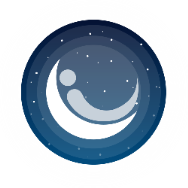
Sleep Restore Based On EMDR
Overcome the Stress that’s keeping you awake
Sleep Hygiene
Sleep Hygiene:
Sleep hygiene is a term used to describe good sleep habit;, that is things you can do to give yourself the best chance of a good refreshing sleep. Most of these things are common sense, but in the hustle and bustle of modern life, are often neglected. Here are some “Dos” and “Don’ts” to help you get a good night’s sleep. If you’re having trouble sleeping, attention to some of these simple things may help.
Do – Go to bed at the same time each day.
The body has a natural clock which will make you sleepy when you’re ready for bed. Try not to ignore this. Going to bed too early may also result in disturbed sleep.
Do – Get up from bed at the same time each day.
Getting up at the same time helps to keep your body clock stay synchronised with what is going on outside. If you
can stick to a fairly regular waking and sleeping time, your body will become accustomed to it. Avoid the temptation
to try to make up for a poor night’s sleep by sleeping in. However, this doesn’t mean that you should be obsessive
about it, an occasional night out or sleep in is not going to hurt.
Do – Get regular exercise each day.
There is good evidence that regular exercise improves restful sleep. Ideally, this should be taken before dinner or in the morning.
Do – Try to spend some daytime outdoors or in natural light.
Light is important for the body to produce melatonin which is a sleep promoting substance. Sunlight early in the day is particularly helpful if you have trouble getting to sleep.
Do – Make the bedroom as restful as possible.
This means keeping the temperature cool, keeping noises and outside light to a minimum and leaving distracting things such as beeping watches or clocks outside.
Do – Use your bed only for sleep and sex.
Some people use the bed as a lounge room, by knitting, studying, watching television, telephoning etc. You need to try and avoid this and make sure that the bed is associated with sleeping. The brain makes connections between places (the bedroom) and events (sleeping) and you need to reinforce these. Make sure the bed is for sleeping and sleeping happens in the bed.
Do – Take medications as directed.
Prescription medications may cause you to be alert or sleepy and the instructions that come with them should be followed. Don’t vary the time of day that you take your medication.
Do – Be comfortable and relaxed.
If you are cold in bed, warm the room or wear warm pyjamas. Warm hands and feet are particularly important. If you have uncomfortable pillows, mattress or bedclothes, get them fixed. You will spend the next eight hours in bed and you don’t want to be uncomfortable. A warm bath about an hour before bedtime causes the body’s temperature to rise and then fall which may promote sleep.
Do – Understand your sleep need.
Most people need between seven and nine hours sleep each day but this includes naps and time spent dozing in front of television. Don’t build up unrealistic expectations of your sleep needs.
Don’t – Exercise just before going to bed.
Exercise immediately before bed stimulates the body and may make it difficult to fall asleep. Take your exercise earlier in the day, preferably before dinner time.
Don’t – Engage in stimulating activity just before bed.
Playing a competitive game, watching an exciting program on television or a movie, or having an important family discussion stimulates your mind and thoughts will overflow to the bedroom. Worrying about or planning the next day’s activity may be a natural thing to do, but try to avoid it.
Don’t – Drink caffeine containing drinks in the evening.
Coffee and tea are the obvious caffeine containing drinks but things such as colas and many other soft drinks also contain caffeine. Read the labels. A glass of warm milk is an old fashioned recipe that may work well. If frequent trips to the toilet are a problem during the night, try not to drink too much before bedtime and make sure you go to bed with an empty bladder.
DISCLAIMER – Information provided in this fact sheet is general in content and should not be seen as a substitute for professional medical advice. Concerns over sleep or other medical conditions should be discussed with your family doctor.
©2012 Sleep Disorders Australia, South Australian Branch
SDA Fact Sheet AT09


